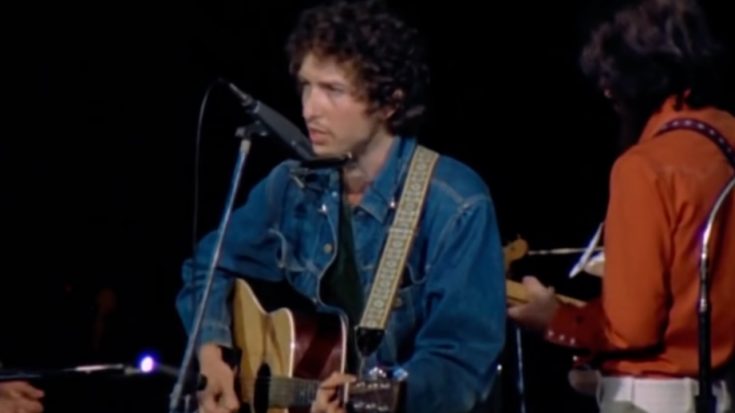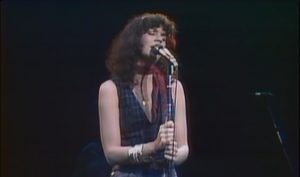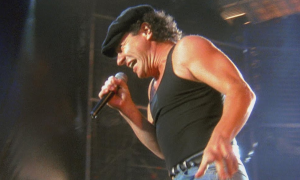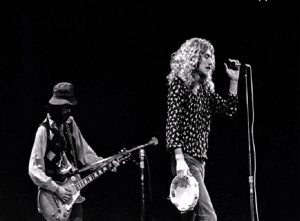10 Murder Ballads You Never Realized Were Great

Bob Dylan live in 1971 - Devin B. / YouTube
Some songs just hit differently when you pay attention to the lyrics. What might sound like a catchy folk tune or a haunting country melody often hides a darker tale—one where heartbreak turns into bloodshed, and revenge is served with a slow, steady strum. These are the murder ballads, and they’ve quietly crept their way into playlists and radio stations without always revealing their sinister cores.
Rooted in centuries-old traditions of storytelling, murder ballads have been passed down through generations like whispered legends. They often serve as cautionary tales, emotional confessions, or poetic acts of retribution. What sets them apart is not just the violence, but the vivid way the stories unfold—layered with grief, guilt, and sometimes, grim satisfaction.
This list rounds up ten standout murder ballads that might have slipped under your radar—not because they’re obscure, but because their melodies are so mesmerizing that their stories might’ve gone unnoticed. These aren’t just tales of tragedy; they’re masterclasses in songwriting, each with a unique way of making horror sound heartbreakingly human.
1. “Long Black Veil” – Lefty Frizzell
First recorded by Lefty Frizzell in 1959, “Long Black Veil” spins a mournful tale of silence and sacrifice. The narrator is falsely accused of murder but refuses to provide an alibi that would clear his name, as it would expose an affair with his best friend’s wife. Instead, he chooses death, a decision wrapped in solemn dignity and emotional weight.
The song’s poetic simplicity is what makes it so striking. Lines like “I spoke not a word, though it meant my life / For I’d been in the arms of my best friend’s wife” linger long after the track ends. It’s a slow burn, soaked in regret and loyalty, and plays like an old southern ghost story passed down on a front porch.
“Long Black Veil” has earned its place in the murder ballad canon, especially through haunting renditions by Johnny Cash and later, the Dave Matthews Band. Each interpretation brings out new shades of sorrow in the story, reminding listeners that silence can be its own form of tragedy.
2. “Goodbye Earl” – The Chicks
Unlike many traditional murder ballads, “Goodbye Earl” takes a turn toward dark humor with a revenge plot that’s surprisingly catchy. Wanda is trapped in an abusive marriage, and her high school best friend Mary Ann swoops in with a lethal plan. Earl, the abusive husband, doesn’t survive the song — and nobody really seems to mourn his loss.
With its upbeat tempo and cheeky lyrics, the track became an anthem of empowerment with a twisted twist. The contrast between the song’s subject matter and its playful delivery is what makes it so memorable. It’s a modern spin on justice, wrapped up in sass and country harmonies.
Despite the serious themes, “Goodbye Earl” remains one of The Chicks’ most iconic tracks. It challenges the boundaries of country storytelling by making listeners laugh, cheer, and reflect all at once. And let’s be honest — Earl kind of had it coming.
3. “The Night the Lights Went Out in Georgia” – Vicki Lawrence
Written by Bobby Russell and famously performed by Vicki Lawrence, this southern gothic tale unfolds like a mini-thriller. A man comes home from a trip only to learn that his wife has been unfaithful — not just once, but twice. Fueled by betrayal and confusion, he ends up in the wrong place at the wrong time, ultimately framed for a murder he didn’t commit.
The song’s suspense is expertly built through vivid details: a lifeless body, a wrongful arrest, and a corrupt justice system. It’s got everything a true crime fan could want. The twist at the end — revealing the real killer — makes you want to hit rewind and listen again with fresh ears.
Reba McEntire’s cover decades later added a fresh layer of drama to the already rich storytelling. It’s a reminder that even in a catchy three-minute tune, you can fit a whole murder mystery novel’s worth of plot — and still leave room for a mic-drop ending.
4. “Two Black Cadillacs” – Carrie Underwood
“Two Black Cadillacs” is a southern noir set to a driving beat. Carrie Underwood tells the tale of two women — a wife and a mistress — who find out about each other and team up in silence. Their shared target? The man who betrayed them both. By the time the song reaches its funeral scene, the listener already knows who’s in the casket.
Underwood masterfully delivers the lyrics with both venom and control. Lines like “And the preacher said he was a good man / And his brother said he was a good friend” sting with bitter irony. The slow reveal of the women’s plan adds layers of tension and cinematic storytelling.
The song’s brilliance lies in how it turns tragedy into empowerment, with a moody atmosphere and just the right amount of theatrics. It’s gothic, it’s glamorous, and it’s the kind of story-song that sticks with you — especially when justice rides in a pair of black Cadillacs.
5. “Ballad of Hollis Brown” – Bob Dylan
Bob Dylan’s “Ballad of Hollis Brown” strips murder balladry to its bare bones. Written in 1963, the song unfolds like a bleak folk tale about a South Dakota farmer driven to the edge by poverty. With his family starving and no help in sight, Hollis Brown spends his last dollar on shotgun shells — and what happens next is devastating.
Dylan’s stark storytelling style suits the song’s content. The repetitive structure, dry delivery, and subtle changes in each verse paint a picture of mounting desperation. There’s no sensationalism here, just a slow descent into hopelessness that ends in tragedy.
What makes “Hollis Brown” unforgettable is its ability to make listeners sit in that discomfort. It’s not about heroism or vengeance — it’s about the crushing weight of survival. Few murder ballads manage to feel this personal, this close to the bone, and that’s why Dylan’s take still resonates.
6. “Jenny Was a Friend of Mine” – The Killers
The Killers opened their debut album Hot Fuss with “Jenny Was a Friend of Mine,” a synth-laced murder ballad that pulls listeners in with its ominous urgency. Inspired by the real-life 1986 murder of Jennifer Levin, the song imagines a suspect being questioned about the crime. The most haunting line — “Jenny was a friend of mine” — echoes as both a denial and a subtle confession.
Brandon Flowers delivers the vocals with a mix of defiance and desperation, never quite clearing his character of wrongdoing. The lyrics leave just enough room for ambiguity, which only heightens the tension. Unlike other ballads that spell out every detail, this one thrives on what it doesn’t say.
The brilliance of “Jenny Was a Friend of Mine” lies in its restraint. It doesn’t need gore to be gripping. The eerie bassline, the detached defense, and the emotional distance all add up to a disturbing narrative — one that has become a fan favorite and a chilling modern entry in the murder ballad tradition.
7. “Delia’s Gone” – Johnny Cash
Johnny Cash was no stranger to crime ballads, but “Delia’s Gone” might be his most infamous. First recorded in the early ’60s and revisited in a stark, stripped-down version in 1994, the song tells the story of a man who murders a woman named Delia. Based on the real-life 1900 killing of 14-year-old Delia Green in Georgia, the track has roots in traditional folk music passed down through generations.
Cash’s delivery in the ’94 version is haunting, especially paired with the sparse instrumentation. He sings with eerie calm, turning Delia’s murder into a confessional. The line “If she was gone, I could get some rest” captures a kind of twisted logic that’s all the more disturbing coming from a voice as iconic as Cash’s.
What makes “Delia’s Gone” endure is its honesty about ugliness. There’s no redemption, no twist, just a man reliving what he’s done. And in classic Cash fashion, the horror is served up with simplicity — just a few chords, a grim smile, and a whole lot of darkness.
8. “Stan” – Eminem
“Stan” might not look like a murder ballad on the surface, but it fits the mold better than most. Told through letters written to Eminem from a fictional fan named Stan, the song explores obsession, neglect, and eventual violence. As the story unfolds, Stan grows increasingly unhinged after being ignored by his idol, eventually killing his pregnant girlfriend and driving off a bridge.
The brilliance of the song lies in its structure. Each verse escalates the tension, moving from admiration to mania. The final verse, where Eminem finally replies — too late — is one of the most devastating conclusions in modern music. And Dido’s haunting chorus sample from “Thank You” adds a haunting contrast to the growing chaos.
“Stan” redefined what a murder ballad could be in the 21st century. It showed that even in the realm of hip-hop, the tradition of storytelling through tragedy was alive and well. It’s disturbing, yes, but also genius in how it captures the psychology behind violence and fandom gone wrong.
9. “Nebraska” – Bruce Springsteen
Bruce Springsteen’s “Nebraska” opens with quiet strumming and closes with a full-body chill. Inspired by the real-life killing spree of Charles Starkweather and Caril Ann Fugate in the late 1950s, the song is told from the killer’s point of view. He doesn’t beg for forgiveness or try to justify his actions — he simply recounts them with chilling indifference.
Lines like “I can’t say that I’m sorry / For the things that we done” hit like a punch. Springsteen’s minimalist arrangement — just his voice and a harmonica — makes the storytelling even more intimate and unsettling. It’s like sitting in the room with a man who’s made peace with his own evil.
“Nebraska” isn’t just a song, it’s an American gothic short story in disguise. It’s about alienation, moral decay, and the ease with which someone can slip into the role of a killer. In just a few minutes, Springsteen turns a true crime horror into an eerie meditation on what it means to feel nothing.
10. “L.A. County” – Lyle Lovett
At first glance, “L.A. County” doesn’t sound like it’s leading anywhere dangerous. The upbeat tempo and almost playful tone mask the fact that the narrator is heading to his ex’s wedding — and he’s not just there for the cake. By the end of the song, he’s killed the groom, and the celebration becomes a crime scene.
Lyle Lovett’s storytelling is dry and exact, filled with little details that lure you in. There’s a sinister coolness in the way the song flows, like a Quentin Tarantino scene backed by a country band. The lyrics are clear, but the emotion is subdued, which makes the twist even more effective.
“L.A. County” is a reminder that a murder ballad doesn’t have to sound dark to be deadly. It’s all in the story and how you tell it. And Lovett tells it with a smirk, a straight face, and a loaded gun — the perfect closer to a list of songs where things don’t always end well.





















